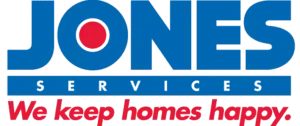
If you have gas heat, it’s time to start getting everything checked out and ready for the winter heating season. Not only does preparation help you save money on your electric bills, it also ensures that you and your family are as safe as possible when using gas heat in your home. Here’s what to know and how you can get even safer heating for next season.
Install Carbon Monoxide Detectors or Test Existing Ones
Carbon monoxide is an extremely toxic gas that is both without color or odor, making it difficult to detect. If you don’t already have carbon monoxide detectors in your home, now is the time to install them.
The Consumer Products Safety Commission suggests that you should have one carbon monoxide detector on each level of your home and within 15 feet of sleeping areas. Do not put detectors in your basement or an attic unless they also have sleeping quarters. Your detectors should be battery-operated and you should check the batteries twice a year. One of the easiest ways to remember this is to check your batteries every time you change your clocks for Daylight Savings.
The Centers for Disease Control and Prevention recommend that you have your gas heating system assessed for any cracks, gas leaks, degraded wires, or other potential issues at least once per year. Ideally, you should do this in the summer or at the start of fall.
Check Your Pilot Light
On the front of your furnace there will typically be a cover panel with hinges, like a little door that you can open to see the pilot light inside. The cover may have a small window that lets you see the pilot light without opening the door, depending on the make and model of your furnace.
Your furnace’s pilot light should always be lit – this is the flame that is responsible for lighting the gas your furnace pumps through your system to create heat. If your pilot light is not lit, any gas flowing through your system will not be combusted and instead fill your home with toxic fumes.
Know Which Smells Are Which
Gas heating systems create a lot of different smells, especially when you turn them on in the winter. Usually, these are nothing to worry about and are just the result of the system starting up for the first time after being off for the summer season. But some odors indicate a problem and it’s up to you to know which is which.
- DANGER: The scent of rotten eggs indicates a potential natural gas leak.
- DANGER: The smell of burning plastic may mean that something has gotten lodged in the furnace and poses a fire risk.
- SAFE: The smell of burning dust is normal and usually goes away within the first couple of times you use your heating system during the winter season.
Consider Upgrading to a Ductless Heat Pump
Gas heat can be expensive and puts you at an increased risk of home fires and carbon monoxide poisoning. Ductless heating is a great way to keep your home warm and comfortable during New York’s brutally frigid winters without the danger of gas heat. Here are some things to consider:
Benefits of Ductless Heat
- A ductless heat pump doubles as an air conditioner in the summer
- Ductless HVAC does not require you to fill a tank
- Switching from gas heat improves your indoor air quality
- Ductless is safe during all seasons and doesn’t increase the risk of fire
- Ongoing energy costs are lower with ductless heating systems
Contrary to popular belief, ductless mini splits can still heat your home efficiently even if it’s very cold outside. Some heat pump models can operate in weather as cold as -13 degrees Fahrenheit. However, you can supplement your gas heat with ductless and use both on extremely cold days to prevent working your mini split or your gas system too hard.
Need Heating Help? Call Jones Services Today
Get help making sure your home heating system is ready to go for winter from the veteran New York HVAC experts at Jones Services. Our team is committed to ensuring residents and businesses in the Goshen area and surrounding locations have access to reliable heating and cooling services when they need it most.
Contact us today to learn more about gas heat safety, ductless HVAC, and home heating and cooling. Dial [hls_phone_number] now or book online to schedule service or get a quote.

